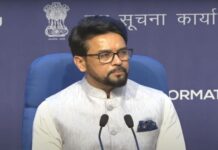The National Commission for Protection of Child Rights (NCPCR) has recommended schools to set up ‘Sugar Boards’ within their premises, containing information that is displayed to educate students about the risks of excessive sugar intake. The move comes amid growing cases of Type 2 diabetes in children.
The Commission stated these boards should provide essential information, including the recommended daily sugar intake, the sugar content in commonly consumed foods (unhealthy meals such as junk food, cold drinks, etc.), health risks associated with high sugar consumption, and healthier dietary alternatives.
Recently, Ministry of Health & Family Welfare also proposed to display oil and sugar boards in Ministries, offices, and public institutions to create awareness about excessive intake.
Schools under the Central Board of Secondary Education (CBSE) are installing sugar boards following a recommendation from the NCPCR. In line with CBSE, many other state board schools across India are also taking similar steps.
The move has sparked debate among experts.
Seema Paroha, Director, NSI (Kanpur), questioned the rationale behind targeting sugar specifically. She said India is one of the lowest per capita consumers of sugar, but still has the dubious distinction of being the diabetes capital. This shows there is no connection between sugar consumption and diabetes.
“As a biochemist, I don’t support this move to install Sugar Boards in schools. It’s incorrect to single out sugar; the fact is that when we have carbohydrates, the body breaks it down to glucose. All the nutrients in the food pyramid are essential for the body. We have to understand how to have a balanced diet. There is a need to include Nutrition and how to have a balanced diet in the school curriculum”.
Sanjay Khatal, Managing Director at Maharashtra State Cooperative Sugar Factories Federation, said that this issue does not seem to be within the ambit of the Commission and nor within the functions and powers enshrined by the UN charter or the NCPCR.
“There are far more urgent issues for the Commission to address—like improving government investment in education, promoting extracurricular engagement, and integrating civic science into the curriculum,” he said.
Dr. Rajarshi Bhattacharjee, Doctor, Internal Medicine and Holistic Wellness Expert, gave a more balanced view. He said that, like salt or fat, sugar has a place in a healthy diet, but in the right amount and right form. “Teaching kids to enjoy sweets occasionally, not daily, helps build a healthy relationship with food.
The focus should be more on creating a balance in life, promoting healthy eating habits along with regular exercise and sports”.
Read Ministry of Health & Family Welfare letter

















